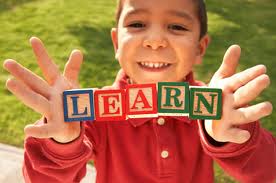By Leo Babauta
Yes, you absolutely are. Because not getting a high school education like everyone else means your kid will know nothing useful, and be unready to get a job and unsuited for life.
OK, sarcasm aside, let’s take a look at this question sincerely. It’s a legitimate worry, because unschooling parents are taking a big risk — if everyone else is doing regular schooling, that’s the safe play. Doing something radically different with something that could affect your kid’s future life means you’re taking a huge risk with a potentially huge downside, right?
Well, actually I don’t think so. Let’s look at the risk … and in doing so we can see at why unschooling is actually improving your kid’s life.
The Non-existent Risk
If you’re unschooling your kid, could it ruin her life?
Well, let’s take the worst-case scenario.
She does nothing during her unschooling years, and watches TV and plays video games. She learns very little math or English skills, never studies science or history.
Well, that’s highly unlikely. First of all, kids learn to read if their parents read. They want to learn to read stuff on TV and can’t play video games without reading, to start with. But if you read to your kid, she’ll learn to read.
Second, they’ll learn a little math. Counting, addition and subtraction, at the very least, to get by on a day-to-day basis.
And kids are curious. They ask questions, and if you help them find the answers, they’ll learn a lot. If you show them how to find answers, that’s a valuable skill right there.
Take the kid places once in awhile. Set an example by doing interesting things and learning stuff on your own all the time. Talk to the kid.
So the realistic worst-case scenario is that the kid does very little, but still learns some stuff. And here’s what the kid really learned:
- Some basic English and math skills;
- Random things they’re interested in;
- How to learn and find stuff out on their own;
- That curiosity is good;
- That you don’t need to conform and do what everyone else does.
There’s more, but that’s a great start. Now the kid is 18, and perhaps is behind others in job skills, but can easily learn a few things on her own and catch up. Plus she hasn’t had curiosity driven out of her, and knows how to teach herself, which is something many kids who go to school don’t have.
The More Probable Scenario
That’s the most likely worst-case scenario … but actually I’ve never really heard of unschoolers who end up learning so little. In reality, unschoolers do a lot of things beyond watching TV and playing video games (though those activities aren’t necessarily worse than others).
What are unschoolers more likely to do?
Here’s a more likely list of activities over the course of an unschooling career (besides just TV & video games):
- Reading novels;
- Getting into topics like animation or Greek mythology and diving deep into them;
- Creative projects like dollhouses and starting a Youtube channel;
- Learning guitar or piano;
- Traveling a bit and learning a language;
- Drawing, making comic books, writing short stories, writing a novel during NaNoWriMo;
- Geeking out on science and doing some cool science projects;
- Going on nature field trips and learning about bugs and ecology;
- Doing pushup challenges and running 5Ks;
- Learning to program and making an iPhone app;
- Starting their own small business.
The list could go on and on. Over the course of a year, a kid might only do a few of those, but over the course of 10-15 years, the list would be much longer.
And you could see that they don’t have to cram a lot into each year to have a long list of activities, skills, things they really learned about.
And here’s what they really learned:
- How to teach themselves;
- That they don’t need an authority to hand down knowledge or tell them what to do;
- How to overcome fear of the unknown;
- How to have confidence in themselves;
- How to start something and get excited about it and finish it;
- How to motivate themselves;
- That learning is fantastic;
- That an unconventional life is a good one;
- To think for themselves.
And so on. This is a list of skills that an entrepreneur might have. That a fantastic employee might have. That someone well-prepared for life might have.
That’s not ruining her life. That’s creating a great life.
